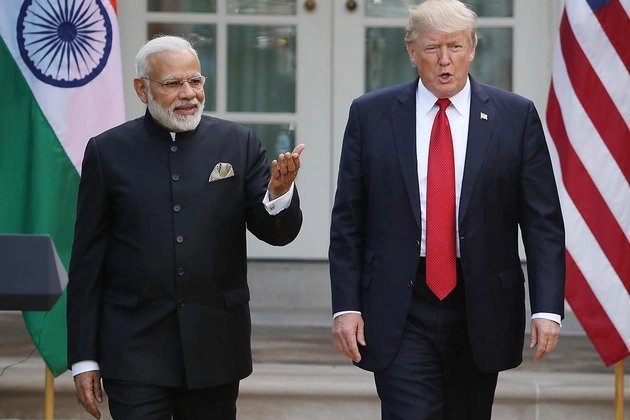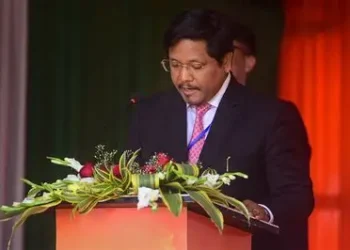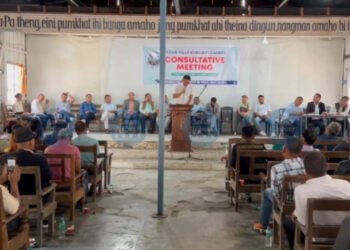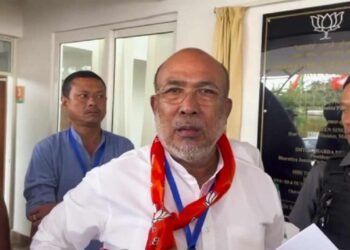In a letter to the President, the lawmakers said the tariff escalation has hurt American consumers and manufacturers while damaging relations with India, the world’s largest democracy and a vital U.S. strategic ally.
BY PC Bureau
October 8, 2025: In a rare show of bipartisan concern over the state of U.S.-India relations, Congresswoman Deborah Ross (D-NC) and Congressman Ro Khanna (D-CA) on Tuesday led a group of 19 Members of Congress in calling on President Donald Trump to take immediate steps to repair what they described as a “strained and deteriorating” partnership with India.
The lawmakers, representing districts with sizable Indian-American populations, urged the administration to reverse recent tariff increases on Indian goods that have disrupted trade, inflated consumer costs, and, according to them, risked driving New Delhi closer to America’s geopolitical rivals.
“Reset and Repair” Call to the White House
In a detailed letter addressed to the President, the lawmakers wrote:
“We write as Members of Congress representing districts with large, vibrant Indian-American communities that maintain strong familial, cultural, and economic ties to India. Recent actions by your administration have strained relations with the world’s largest democracy, creating negative consequences for both countries. We urge you to take immediate steps to reset and repair this critical partnership.”
The appeal comes amid growing concern within Washington that the Trump administration’s hardline trade policies could undo decades of diplomatic and economic progress between the two countries.
READ: Shocking Twist in Zubeen Garg Death: DSP Arrested
In late August, President Trump’s administration imposed sweeping new tariffs on Indian exports — raising duties on key goods such as pharmaceuticals, textiles, and steel to as high as 50 percent. The move combined an initial 25 percent “reciprocal tariff” with an additional 25 percent penalty, reportedly in response to India’s continued energy trade with Russia.
“These punitive measures have hurt Indian manufacturers while simultaneously raising prices for American consumers and damaging the intricate supply chains that U.S. companies depend on,” the Members wrote.
According to trade analysts, the new tariffs have already affected roughly $12 billion worth of bilateral commerce, impacting industries from semiconductors and electronics to renewable energy and health care. Economists warn that sustained friction could trigger retaliatory measures from New Delhi, further tightening global supply chains.
READ: Manipur: Kuki Militant Group Asks Kuki-Zo MLAs to Quit Assembly
Ross, Khanna, and their colleagues underscored that the U.S.-India trade relationship supports hundreds of thousands of jobs in both countries and is integral to America’s long-term economic security. They cited examples of Indian investments in U.S. manufacturing, pharmaceuticals, and technology that have created employment across multiple states.
“American manufacturers rely on India for key inputs in sectors ranging from semiconductors to energy and healthcare,” the letter noted, adding that punitive trade barriers “threaten to undermine these mutually beneficial links.”
Lawmakers also highlighted India’s role as one of the fastest-growing markets for American defense and technology exports, emphasizing that both countries’ economic fortunes are deeply intertwined.
US Lawmakers urge Trump to take immediate steps to reset and repair the critical India-U.S. partnership…. Call for appropriate steps beginning with a review of tariff policy and continued dialogue with Indian leadership. #tariff pic.twitter.com/iIRlqs94G8
— Dinakar Peri (@dperi84) October 8, 2025
Strategic Fallout: “Pushing India Toward Rivals”
Beyond the economic dimension, the Members of Congress warned that the tariff escalation could have serious geopolitical consequences, including the erosion of trust between Washington and New Delhi.
They cautioned that isolating India economically could push it “closer to regimes hostile to the United States, including China and Russia,” thereby undermining U.S. interests in the Indo-Pacific region.
Describing India as a “stabilizing force” and “vital defense partner,” the lawmakers referenced the country’s central role in the Quad alliance — a strategic grouping of the U.S., Japan, India, and Australia aimed at maintaining a “free and open Indo-Pacific.”
“The United States and India share democratic traditions that set us apart from our authoritarian competitors,” they wrote. “Our cooperation demonstrates that free and open societies can prosper through mutual respect.”
Trump’s India Policy Under Fire
President Trump’s recent remarks on India’s energy ties with Moscow have further complicated relations. He has accused New Delhi of “funding Putin’s war” through continued oil purchases from Russia — comments that Indian officials dismissed as “misguided and uninformed.”
The administration has also suspended talks on a long-discussed bilateral trade agreement, leaving key sectors such as pharmaceuticals, digital services, and agriculture in uncertainty.
India now ranks among the three countries facing the highest U.S. import duties, alongside China and Russia — a status that observers say reflects a worrying shift in Washington’s South Asia approach.
A Call for “Recalibration, Not Confrontation”
In their concluding appeal, the lawmakers urged the administration to “reaffirm America’s commitment to India” by initiating a policy recalibration focused on dialogue rather than confrontation.
“The U.S.-India partnership is too valuable to be undermined by short-term political calculations,” they wrote. “A pragmatic reset — beginning with a review of current tariff policy and renewed diplomatic engagement — would reaffirm our shared democratic values and strengthen America’s position in Asia.”
The letter signals growing pressure within Congress for a more stable, cooperative approach to India — one that balances economic interests with broader strategic imperatives in an increasingly divided global order.
They continued, “The United States and India share democratic traditions that set us apart from our authoritarian competitors. Our partnership demonstrates to the world that free and open societies can prosper through cooperation and mutual respect.”











